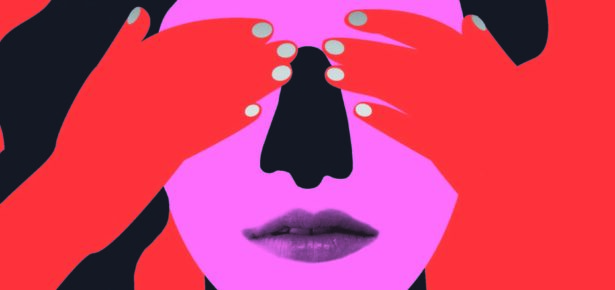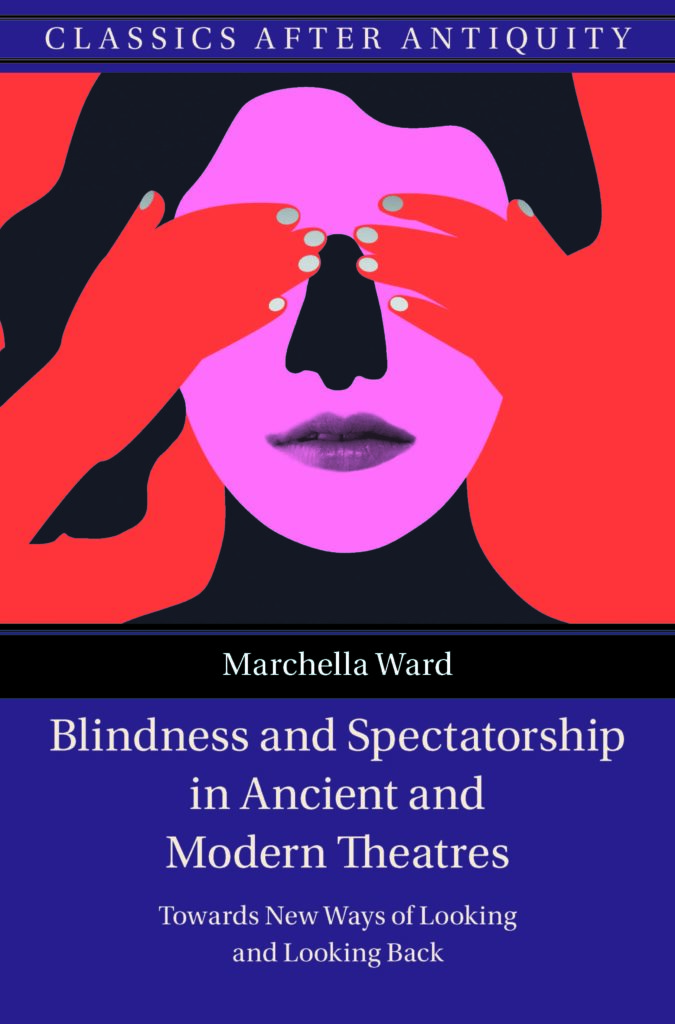
In 2017 a new musical about the life of Louis Braille, The Braille Legacy, opened in London. The show was widely criticised for its flagrant inaccessibility: of the 90 performances, only two were Audio Described, both taking place the same bank holiday weekend. But the material inaccessibility of the performances was only part of the show’s entrenched ableism. It made widespread use of blindness as a metaphor, and the action was punctuated by a chorus of sighted actors who signalled their characters’ blindness through blindfolds. These blindfolds were removed at narratively important moments of the play, and the characters’ ensuing vision functioned as a metaphor for learning to read or coming to some other kind of realisation or knowledge. In other words, the blindfolds signalled not a real experience of blindness, but its metaphorical meaning.
The use of blindness as a metaphor has a very long – and dangerously ableist – history. In fact, blindness is more often used figuratively than it is literally (as Georgina Kleege points out in her 1999 book Sight Unseen). Many people still use blindness figuratively today. Think, for instance, of the idiom “the blind leading the blind”. Here, the term “blind” does not mean literally “lacking the ability to see” but stands in as a metaphor for ignorance. And there are other ideas that blindness metaphorically stands for in literature and culture – not just ignorance but special knowledge (insight), closeness to death, and immorality or criminality. Some of these tropes overlap with other harmful metaphorical uses of disability – like the trope of the disabled villain, for instance. Others are specific to blindness. In my new book, Blindness and Spectatorship in Ancient and Modern Theatres I ask two questions of these tropes in an attempt to dismantle them: where do they come from, and why are they still in circulation when we have known for decades that they seriously restrict the lives of blind people in the real world (as many disability justice activists have been pointing out since before I was born)?
As an academic who is trained predominantly in the discipline of Classical Studies (the study of the ancient Mediterranean) and its reception (the long history of the ancient world’s relationship with the modern one), these ableist tropes felt all too familiar. Once I had documented enough of them in the modern world, they began to remind me of certain kinds of prejudice that are evident in ancient myths, and especially in the ancient theatre. The ancient Greek theatre seemed a particularly interesting place to explore these ableist metaphors about blindness, because it has often been said to have a particular relationship with vision. The term theatron in Greek (from which we get the English word ‘theatre’) means literally ‘the seeing space’ – from the Greek verb theaomai, ‘I see’. And in spite (or perhaps because?) of this association with vision, a number of canonical plays feature characters who are blind or become blind, with playwrights often using blindness – like in The Braille Legacy – to signal ignorance, knowledge, closeness to death and immorality.
In the book I consider many more examples, but to show you what I mean let’s zoom in on one example together. At the beginning of a play by the Greek tragedian Sophocles, known as the Oedipus at Colonus, Oedipus and his daughter Antigone have just arrived at Colonus. Oedipus is at this point blind, having put out his own eyes on discovering that an ancient prophecy that decreed that he would kill his father and marry his mother has come true. As he is getting his bearings in Colonus, with his daughter Antigone identifying the place to him based on non-visual cues (the sound of birds, for instance) the chorus enter the stage. They try to identify Oedipus but they are unable to, until he informs them that he is blind. Suddenly, they begin to draw conclusions on the basis of his disability, and interpret his blindness as if it were a metaphor for other aspects of his character. They exclaim: “Have you been blind ever since you were born? Yours has been a sad life and a long one, it would seem. But you will not bring down these curses on me!”. The chorus are mistaken in their assumptions here. Oedipus in fact hasn’t been blind since he was born, nor is he about to pass on any curses to them. But in their assumptions they showcase a method of reading blindness as if it were a metaphor for other aspects of character that is common in Greek tragedy and myth more generally.
There is a connection between these metaphorical uses of blindness and material inaccessibility, of course. The production team’s desire to use blindness as a metaphor in The Braille Legacy required them to hire sighted actors – many blind actors cannot, after all, return to vision temporarily in order to make a dramaturgical point. Narrative exclusion (the use of blindness as metaphor) depends on material exclusion (of blind actors and audience members). The portrayal of disabled characters by enabled actors is a well-acknowledged problem in theatre and film, and is referred to as “cripping up” by analogy with the more well known term “blacking up”. Cripping up and blacking up are not exactly the same, but both contribute to a deep structural injustice: they leave certain actors under-represented and under-employed in an industry that celebrates marginalised roles when played by actors who are not themselves marginalised (cripping up is, after all, one particularly frequent route to an Oscar for enabled performers). And this is not just a problem of actors and roles: excluding blind people from the audience (except in the two Audio Described performances) is how this ableism so often goes unchallenged.
But ableism should not go unchallenged. And the problem is not only with certain performances – shows like The Braille Legacy are not simply a couple of bad apples in the basket of theatre history. The point of my book is not to call out particular performers, writers and directors as if they were the only ones responsible for a practice I believe to be ableist and unethical. Rather I want to show how this ableism operates structurally and narratively – how ableism becomes normalised as a discourse – and has done at least since the ancient Greek theatre if not since much earlier. But the idea of saying that these narrative tropes are transhistorical and go all the way back to the ancient Greeks unnerves me a little bit. Because if we say that a prejudice has always existed, doesn’t that make it more difficult for us to end it? Describing a harmful attitude as having always been with us doesn’t exactly make us feel like we can begin to meaningfully oppose and dismantle it. This is an important question for justice activists, and an equally important question for those who are interested in classical reception. My book sits at the intersection of these two interests.
The idea that the past sits in a deterministic relationship with the present and future accounts for a big part of the way that prejudices persists into the present from history. If we are to oppose this ableism, then we will need not only activist movements for disability justice but also a new way of understanding how we relate to the ancient world, or, in other words, activist ways of understanding classical reception. To that end, my book tries to answer a third question, asking not just ‘where do these prejudices originate?’ and ‘why do they persist when we know they are harmful?’ but ‘what kind of a relationship with the ancient world would we need to imagine and inhabit in order to stop these prejudices from operating?’. The answer to this third question changes the terms of the first two. Searching for an origin becomes a function of a particular way of organising time that – as I show in the book – actually helps these prejudices to persist. Saying “it has been this way since antiquity” proves to be a way of refusing to take responsibility for the fact that the whole ecosystem of theatre history is implicated in the continued perpetuation of prejudice.
And this is really what I would describe as the core goal of the book: to stop the ancientness of this ableist prejudice from getting in way of each of us taking ethical responsibility for our implication in perpetuating it. To reimagine an ancient world, and relationships with it, that will help us to create a more just future – one without ableism and other structural injustices. I think that this work is urgent even if the scale of it is daunting. Even if we have to retool and remake time, space, history, methodology, and almost everything we think we know about our relationship with the ancient world in order to do it.

Latest Comments
Have your say!